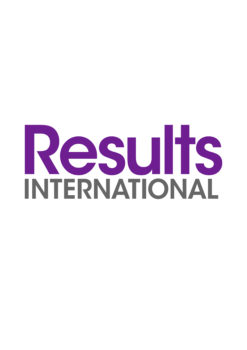2017: A Good Year for Ad Tech & Martech M&A
by Rebecca Muir on 23rd Jan 2017 in News

Annual ad tech and martech M&A figures point towards a healthy 2017.
- Total ad tech/martech deals completed remains steady year-on-year
- Combined disclosed value of deals grows by USD$9.6bn (£7.8bn) on 2015
- Significant increase in Private Equity backed deals
Specialist technology M&A advisor Results International revealed last week (18 January) the number of ad tech and martech deals completed in 2016. The combined total stands at 412, up by one deal on the previous year. However, the combined totals hide a marked difference between the two sectors. The number of ad tech deals completed fell from 155 in 2015 to 121 in 2016, whereas martech deal volume rose from 256 in 2015 to 291 in 2016.
The total disclosed deal value for 2016 was USD$24.2bn (£19.7bn), an increase of USD$9.6bn (£7.8bn) year-on-year. This growth was most marked in ad tech, up by USD$6.5bn (£5.3bn) to USD$15.2bn (£12.4bn) in 2016. Deal value growth was less pronounced in martech, up from USD$5.7bn (£4.6bn) in 2015 to USD$9.0bn (£7.3bn) in 2016.
2016’s disclosed deal value figures were impacted by a number of ‘mega’ acquisitions in excess of USD$1bn (£0.8bn): Yahoo! by Verizon (USD$4.8bn, £3.9bn)); Demandware by Salesforce (USD$2.8bn, £2.3bn); Marketo (USD$1.6bn, £1.3bn) and Cvent ($1.7bn, £1.4bn) by Vista Equity Partners; Applovin by Orient Hontai Capital Partners (USD$1.4bn, £1.1bn); and Sitecore by EQT (USD$1.1bn, £1.9bn).
Many of the biggest deals were Private Equity (PE)-backed; PE investment continues to grow in the sector and figures were up for the third consecutive year, rising from 7.3% of all deals in 2015 to 12.6% in 2016.
In fact, PE firm Vista Equity Partners overtook WPP to become the most acquisitive buyer in the ad tech/martech sector, completing a total of seven deals. Making four acquisitions in 2016, WPP also fell behind Dentsu, which completed five deals. A quarter of those companies doing deals made two or more acquisitions last year, of which the most acquisitive included internet firms such as Alphabet, eBay, and Rakuten; publishing firms such as Time Inc; and enterprise software businesses such as Salesforce and IBM.
Julie Langley, partner at Results International, comments: “There’s an increasingly diverse range of buyers looking to make acquisitions in the space. It’s still a fragmented market, but consolidating at pace. As ad tech and martech technologies have matured, they’ve become more attractive to both PE firms and to Asian acquirers that wish to invest in scaled businesses in the West.”
Just over a third (34.2%) of all ad tech/martech transactions in 2016 were cross-border. North America was once again the most significant target market for M&A in both the ad tech and martech sectors, with 53 (44%) and 171 (59%) deals completed respectively – a marginal year-on-year increase for both.
Meanwhile, the M&A market for the UK remained firm, attracting 8% of global investment for ad tech and 7% for martech, both showing growth on the 6% reported for each in 2015. Elsewhere, geographic metrics for last year remained largely in line with 2015 levels.
Julie Langley concludes: “2016 was a year of mixed signals; and yet again we’ve seen quite a difference between the fortunes of ad tech versus martech. Martech deal activity continued to rise; there were 291 martech deals in 2016, up from 256 in 2015. By contrast, despite some very large acquisitions, overall ad tech deal volume was down from 155 deals in 2015 to 121 in 2016. However, the range of buyers interested in the sector continues to expand and drive solid levels of deal activity. We also saw renewed life in the public markets, with the first ad tech IPO since Q2 2015 in the form of The Trade Desk.
“Looking to 2017, we expect deal activity to remain robust, driven by an ever-expanding buyer universe and the continued rapid innovation in the way we all consume media and research and make purchases. Hot areas are likely to include AI and machine learning, virtual reality, user generated content, augmented reality, discovery, and data and predictive analytics."








Follow ExchangeWire